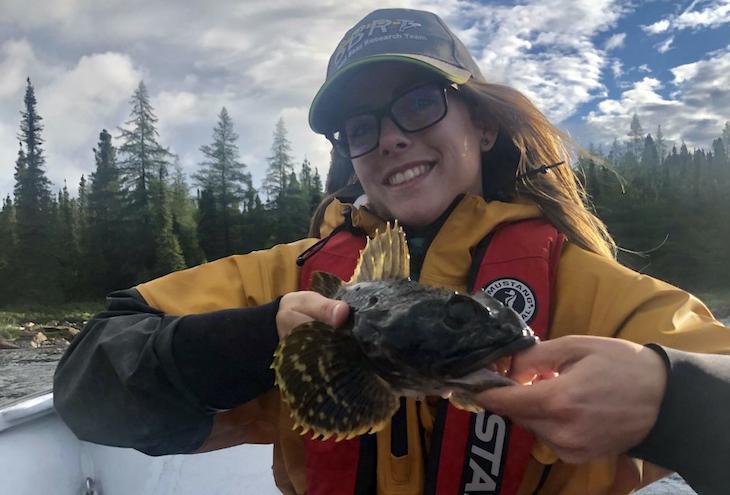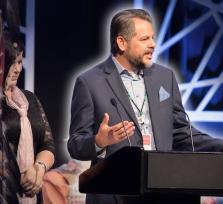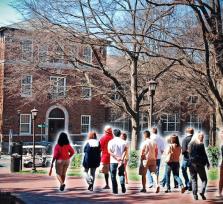Growing up, Leah Creaser spent much of her time with her friend Taylor adventuring behind their older brothers. Those excursions typically involved heading out on four-wheelers to some water and dropping a line to see if they could catch anything. While she didn’t always come home with dinner, Creaser did catch a love for fish. She is currently completing a bachelor’s degree in biology with a focus on fish science at Acadia University in Nova Scotia.
Creaser, Mi’kmaq, grew up in the small, rural town of Centreville in Nova Scotia’s Annapolis Valley. As a child, she didn’t appreciate how much her family struggled. Looking back, she realizes the lengths her parents went to in order to support their children, and their struggles have had a significant impact on her today. “You need to work for what you want and appreciate what you do have,” she explains.
Creaser understands this idea better than most, as success in high school did not come easy. After a rocky start, she switched to a new school and hoped her high school experience would get better. Instead, she encountered more hurdles. “I was put on academic probation. I had some teachers tell me to just leave the classroom because they decided I wouldn’t be anything,” she explains. Despite these setbacks, Creaser found support from a select few teachers, and ended up graduating with honors.
After high school, Creaser pursued her initial goal of working with animals by completing her diploma in veterinary assistance. After five years in the field, Creaser decided to go back to school at Acadia University to start a path into becoming a veterinarian. There she found herself in a situation that set her apart. She was older than most of the other students and found it difficult to juggle classes, full-time work, and paying bills. “I failed a few classes trying to maintain a full courseload,” she says.
Additionally, Creaser keenly felt the lack of a First Nation community on campus. “I would walk around just wondering who else was Indigenous that I could connect with,” she says. “Who else could I practice culture or ceremony with?” Creaser found an answer when she joined — and eventually became president of the Indigenous Student Society of Acadia. She has also become involved in other ways on campus, including serving as a traditional drummer and singer for Melgita’t Women and as a student chair of the university’s Indigenous Education Council.
After her second year of university, she landed a summer job in a fish laboratory, and a lightbulb went off. Working with fish became Creaser’s passion, one she knew she needed to follow. “I quickly rearranged my class schedule to become a biologist focusing on fish,” she recalls.
Today Creaser is a fifth-year honors biology student, with a focus on fish science, and she couldn’t be happier. “Working in the fish laboratory is now my life,” she says. She finds the work both interesting and challenging. Just as important, Creaser also finds the environment supportive of her culture. “I learned from working there that research projects can be fully inclusive with First Nation communities,” she adds.
Recognizing the value of traditional Indigenous knowledge in science is important to Creaser, and she has taken a big step to help all students — Indigenous and non-Indigenous — appreciate it too. Creaser created her own lab incorporating Mi’kmaq knowledge as part of a research project and agreed to teach 120 first-year students about her band’s traditional plant knowledge. That lab is now part of the core biology course required of first-year students.
This year Creaser was one of only 10 students across Canada awarded a prestigious 3M National Student Fellowship. Her goal is to obtain a PhD in biology focusing on fish science and become a professor, incorporating Indigenous knowledge into her research projects. She enjoys a challenge and is ready for what lies ahead.
Creaser wants everyone to have that same confidence, and she encourages others to pursue their passions regardless of what people say. “Any authority figure who has made you feel unable to be what you want is 100 percent mistaken,” she says. Creaser tells other Indigenous students to focus on themselves and their goals, and to be proud of who they are and where they came from. “You don’t need to prove who you are to anyone,” she explains. “Remain proud of who you are, and who your ancestors are.” For her part, Creaser has made her choice and she knows it is the right one.












